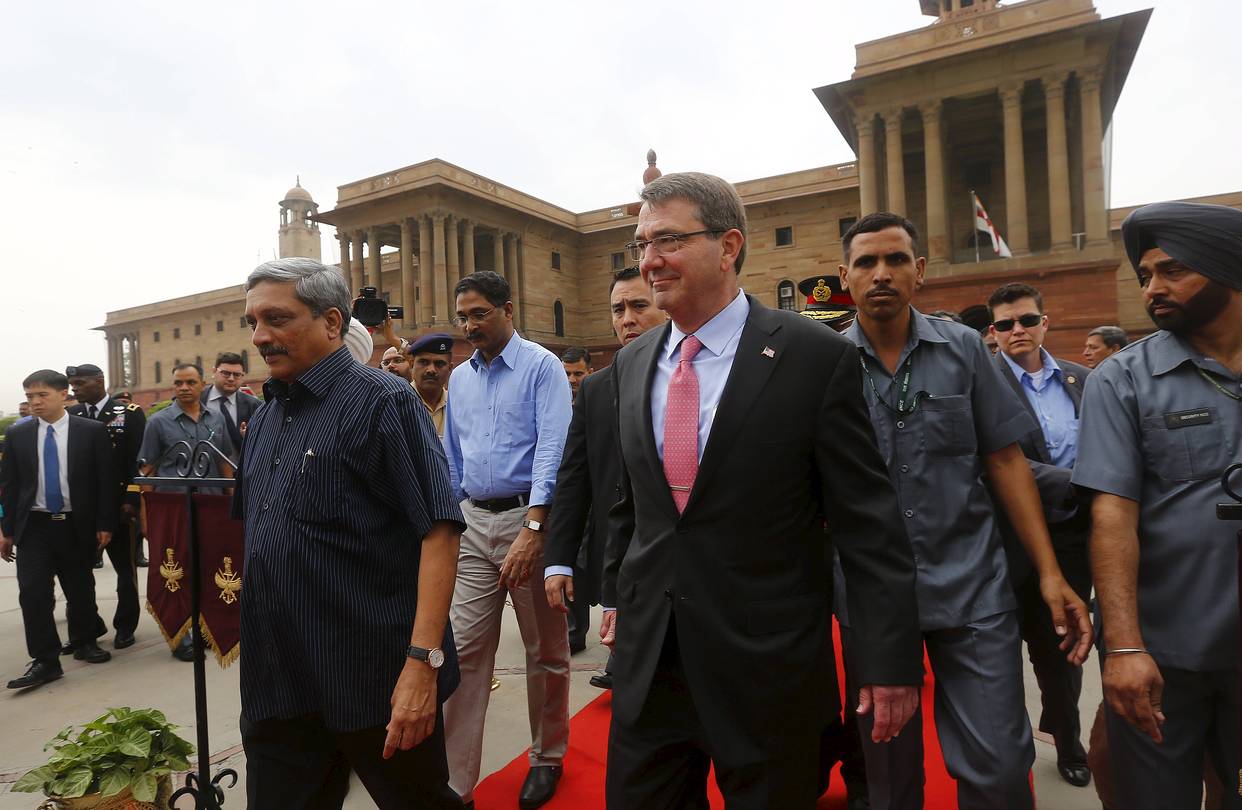As part of its role in the ongoing rebalance to the Asia-Pacific, the Defense Department is making new investments in the region and linking its bilateral relationships there to bilateral and trilateral arrangements, Defense Secretary Ash Carter said today.
The secretary is on a two-week trip to visit with leaders in India, the Philippines, the United Arab Emirates and Saudi Arabia.
Speaking to the sailors and Marines aboard the aircraft carrier USS John C. Stennis as it sailed in the South China Sea, Carter said America’s rebalance to the Asia-Pacific region, which President Barack Obama announced five years ago, now aims to sustain the progress already made.
Carter was joined aboard the Stennis by Philippines Defense Secretary Voltaire Gazmin.
Next Phase of the Rebalance
“Militarily,” Carter said, “the Department of Defense is operationalizing the next phase of the rebalance and rebalancing it for the long term. We’re bringing our best people, people like you and our best platforms like the Stennis, forward to the Asia Pacific.”
The department is making new investments in key capabilities and platforms, deepening bilateral relationships, strengthening long-time alliances like the one that exists with Philippines and deepening ties with newer partners like India, the secretary noted.
“But in a large and interconnected region we’re taking an additional step,” Carter said.
As the region changes, the United States is linking its bilateral relationships with bilateral and trilateral arrangements, weaving the partnerships together to more effectively bolster American and regional security, he added.
“This is the network — peaceful, principled and inclusive — that America continues to stand for and stand with,” Carter said.
Close Friends and Allies
In his brief remarks, Gazmin said his nation relies on the strong bond of sympathy and mutual ideals shared with the United States — “close friends and allies to fight side by side against the threats of external aggression as we [have] in the past.”
Carter told the crew that, with many partners and allies like the Philippines, the United States has for decades stood tall for enduring rules and principles, including the peaceful resolution of disputes, freedom of navigation and the ability of countries to make their own security and economic choices free from coercion and intimidation.
“Americans like you have helped provide the necessary security and stability for this … region to thrive with our strong defense engagements here. The United States has long provided the necessary reassurance, an attractive and appealing reassurance, and worked to keep the peace here in the Asia Pacific,” he said.
Since World War II hundreds of millions have been lifted from poverty in the region, Carter added, and though there’s room for improvement, democracy and freedom have spread across the region and economic miracles have occurred in Japan, Taiwan, South Korea and Southeast Asia.
Answering the Call
Today China and India also are prospering, he said.
“That progress creates opportunities for the region and for America to continue to grow,” Carter said, “but those changes also can produce some negatives, and recently not all the news out of the Asia-Pacific has been positive. Indeed, in the South China Sea China’s actions in particular are causing anxiety and raising regional tensions.”
In response, he added, countries across the Asia-Pacific region — longstanding allies and new partners — are reaching out to the United States to uphold the rules and principles that have allowed the region to thrive.
“And we’re answering that call,” the secretary said. “We’re standing with those countries and standing up for those rules and principles, making important new investments in defense technology, and we’re continuing to fly, sail and operate wherever international law allows.”










